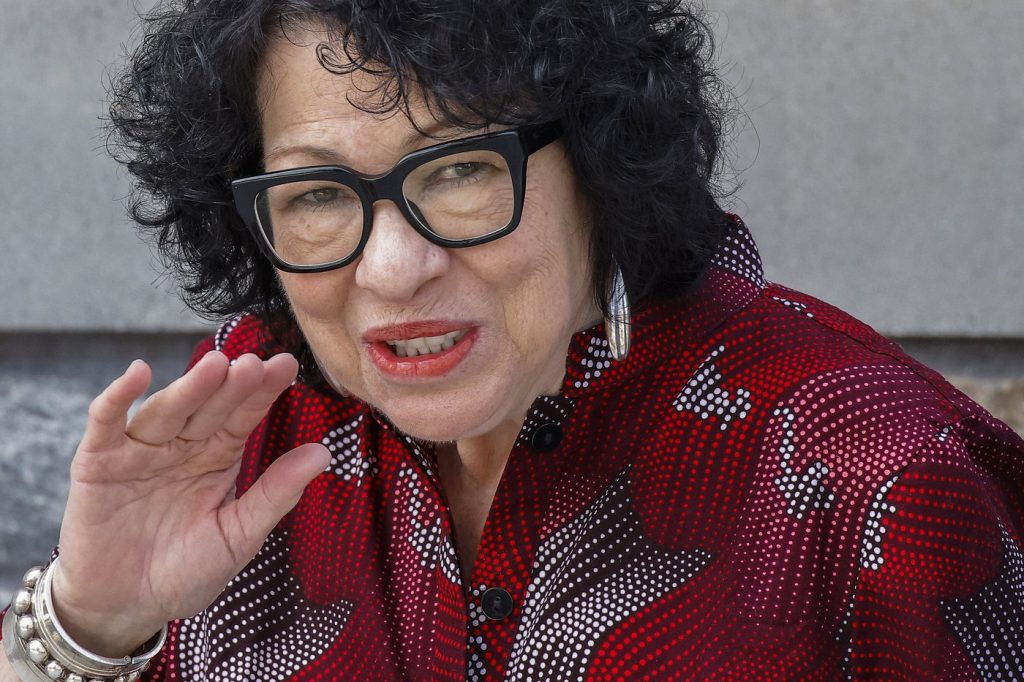U.S. Supreme Court Justice Sonia Sotomayor addressed concerns regarding the decline in public confidence in the court during an event in Louisville, Kentucky, on a recent Wednesday night. She suggested that the court might foster greater public support if it approached the overturning of precedents more cautiously. “I think my court would probably gather more public support if it went a little more slowly in undoing precedent,” she remarked.
Justice Sotomayor highlighted the influence of the conservative majority within the court, particularly noting the recent decisions reshaping significant legal precedents. These include the overturning of Roe v. Wade, which eliminated nationwide abortion rights protections, and the striking down of affirmative action in college admissions, which effectively reversed decades of legal rulings. She emphasized that the rapid pace of these changes could lead to societal instability and create a perception of the court’s decisions being influenced by partisanship.
While Sotomayor did not specify the recent controversial cases during the event, she expressed her belief that public skepticism increases when the court enacts swift, sweeping changes. “I think that creates instability in society, in people’s perception of law,” she explained. She conveyed that while she respects her colleagues' legal interpretations, which they believe enhance democracy, the speed of changes can lead to a feeling of insecurity among the public regarding the legal system.
Sotomayor warned of potential backlash from the public if the court continues to move too rapidly away from established precedents. She stated, “If we continue going in directions that the public is going to find hard to understand, we’re placing the court at risk. So I think we have to proceed slowly in overturning precedent.” Her commitment to a careful approach indicates her awareness of the delicate balance that the judiciary must maintain between legal evolution and public trust.
Additionally, Justice Sotomayor defended the judiciary as the most transparent branch of government. She highlighted that judicial decisions must come with written explanations, which she believes is essential for maintaining public confidence in the legal system. “Because generally we don’t make backroom deals,” she remarked. This transparency, she argued, differentiates the judicial process from other governmental decisions.
When reflecting on her role on the Supreme Court, Sotomayor expressed a strong sense of purpose and fulfillment. She noted her appreciation for being an active participant in significant decision-making processes, indicating that having her voice heard is meaningful, even when her views do not prevail. “Speaking what I see as what the law requires is important,” she affirmed, adding that articulating her perspective matters, regardless of whether her colleagues agree.
Sotomayor's moments of success in swaying her colleagues on legal matters, however infrequent, are highlights of her tenure. She savors these victories, which she stated still occur occasionally, motivating her to continue her work on the court. Her remarks came during a Q&A session with the dean of the University of Louisville law school, where she was presented with the Brandeis Medal in recognition of her commitment to public service and justice.
Earlier in the event, Kentucky's Democratic Governor, Andy Beshear, echoed concerns about the court's role, asserting its “sacred duty” to rule impartially. He suggested that the court forms the backbone of democracy by upholding the rule of law, which is vital for serving the public and not just the powerful interests. Governor Beshear, a former state attorney general, is often discussed as a potential candidate for the presidency in 2028, highlighting his growing political prominence.










